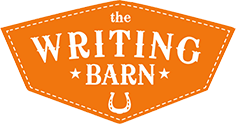A Message from Bethany Hegedus, Author & Founder/Creative Director of the The Writing Barn:
Black lives matter.
Black writers matter.
Black children matter.
Here at The Writing Barn, the staff and myself have been doing the deep and essential work of analyzing the role my whiteness as Founder/Creative Director of The Writing Barn and the racial make-up of our staff, teaching artists, and the writers and creatives we aim to serve plays in our day to day work.
Last year, I began to contemplate how the publishing industry can feel like a country club. Writers aren’t sure how we were let into the room. We don’t feel allowed to ask questions. We don’t want to appear to be difficult. So we mull around the room (the industry) pretending to feel accepted, heard, and like we know what we are doing.
That is how we cis white writers feel.
This power dynamic of the nameless/faceless gatekeepers and the “secrets of the publishing world” has an even more detrimental impact on BIPOC creators and LGBTQIAP+ and neurodiverse creators who encounter many more obstacles, while being paid less, to bring their work to the world.
What if, instead of the country club model of publishing, we could create a more inclusive model? I began to daydream about the publishing industry transforming itself into a community garden, one with many hands tilling the soil, planting the seeds, and watering the plants, so a deep and rich variety of voices could grow. Where the gatekeepers–agents, editors, reviewers, programming directors–looked like the reading public. Where we’d usher in new talent and instead of keeping our questions quiet, we’d be transparent about the ups and downs of both the creative and the business side of our industry, especially when it comes to equity for marginalized voices. Instead of pretending to belong, what if we created real belonging?That’s what I want for the creative community that grows at The Writing Barn, on-site and online. And for the publishing industry as a whole.
With that in mind, as we continue the deep analysis work that it takes to make lasting change and to follow up with action and accountability, we, at The Writing Barn commit to:
- Continual amplification of BIPOC voices, and to develop programming that is more inclusive and at times exclusive: solely to BIPOC creatives.
- Continual amplification of LGBTQIAP+ voices, and to developing programming that is more inclusive and at times exclusive: solely to LGBTQIAP+ creatives.
- Increased partnerships with various writing organizations that are BIPOC and LGBTQIAP+ led/directed.
- Providing reading lists and other resources to our wide array of teaching artists and writing customers.
- Creating continual scholarship funding for marginalized voices, economic need, and neurodiverse writers.
- Opportunities for social justice conversations, specifically for white writers within our community, to be sure bias and privilege is addressed.
- A diverse and inclusive roster of teaching artists.
- A diverse and inclusive roster of Writing Barn Fellows and other volunteers.
- Attending diversity, inclusion, and equity trainings on an ongoing basis.
We have work to do. You will be hearing more from us on these efforts as we plan, implement, reassess, and execute. And, as always, we welcome hearing from you directly: ideas, potential partnerships, resources, and more.
“I was responsible for my every thought and action, yes; but I was also responsible for the thoughts and actions of the world. To change the world, I needed to change myself.” – Arun Gandhi & Bethany Hegedus, from Be the Change: A Grandfather Gandhi Story
Resources We Have Utilized
The Writing Barn team attended a Whiteness at Work session, led by the Adaway Group, whose mission is dismantling oppressive systems and building equitable workplaces. More trainings are being offered throughout the summer.
The Brown Bookshelf: KidLit4BlackLives Rally (Youtube replay: https://youtu.be/fElXu_MdRrs) My family and I viewed the rally many times, in awe of the power and passion, by a range of diverse speakers: Kwame Alexander, K.A. Holt, Jacqueline Woodson, Jason Reynolds and more.
Black Voices: Pushing for Change in Children’s Book Publishing This Monday, The Writing Barn team and I attended this webinar organized by the Author’s Guild, highlighting the need for change and the frustrations of Black professionals within the children’s publishing business. I believe a replay will be made available at the Author’s Guild website soon.
Haymarket Books: Raising Antiracist Kids: Empowering the Next Generation of Changemakers with Ibram X. Kendi and Derecka Purnell (You tube: https://youtu.be/FnqS49Zfrjw) Ibram X. Kendi is a scholar and activist whose work for adults and children we should be turning to over and over.
New York Times coverage on #publishingpaidme NYT coverage over the twitter hashtag that highlights the discrepancies in advances and opportunities afforded to white writers at the expense of Black writers and other marginalized voices.
Mapping Our Social Change Roles in Times of Crisis by Deepa Iyler Wondering how you can use your skills and personality to create change? Turn to this empowering resource.
Sesame Street Town Hall/CNN Black Lives Matter: A town hall for kids and families (https://youtu.be/b32hxDTPJUY)
Readings on racism, white supremacy and police violence (Lit hub) A collection of readings from Lit Hub.

Well, I truly love reading this. I say YES to THIS!
Thank you.